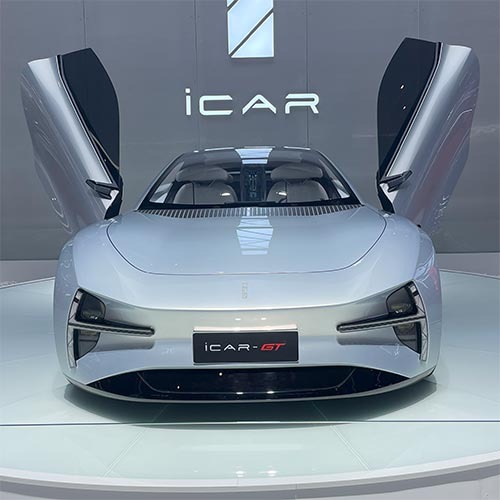This could be a game changer.
me »
Battery News
Solid-state battery startup Talent New Energy unveils cell with ultra-high energy density

Phate Zhang
Apr 3, 2024 13:43 GMT+8
Talent said its solid-state battery cell prototype has an energy density of 720 Wh/kg, which is twice the energy density of
Nio supplier WeLion's semi-solid-state battery cell.
(Image credit: Talent New Energy)
Chinese solid-state battery startup Talent New Energy has unveiled a new all-solid-state battery cell with ultra-high energy density, as the industry's quest for new battery technology continues to advance.
Talent has successfully developed the world's first automotive-grade, all-solid-state lithium metal battery prototype with a single cell capacity of 120 Ah and a real-world energy density of 720 Wh/kg, the company announced yesterday.
This sets new industry records for single cell capacity and highest energy density for lithium batteries, Talent said in a statement.
|
Join us on Telegram to receive news instantly
For comparison, Nio's (NYSE: NIO) 150-kWh semi-solid-state battery pack uses cells from Beijing WeLion New Energy Technology, with a capacity of 360 Wh/kg.
The EV maker said last month that the pack
will be in service in the second quarter and will give Nio vehicles a range of more than 1,000 kilometers on a single charge.
Talent's all-solid-state battery has twice the energy density of WeLion's semi-solid-state battery, meaning it is expected to give EVs a range of around 2,000 kilometers if it can be mass-produced.
Talent said it has made breakthroughs in a number of key technologies for all-solid-state lithium batteries, including ultra-thin dense composite oxide solid-state electrolytes, high-capacity cathode and anode materials, and an integrated solid-state battery molding process.
The newly announced battery's positive electrode uses high-capacity, long-cycle lithium-rich manganese-based materials, while the negative electrode uses a composite lithium metal-based material that is ultra-wide, ultra-thin and combines high cycle stability and high multiplicity, according to the company.
Meanwhile, Talent has improved the migration of charged particles inside the positive electrode by constructing an efficient ion and electron transport network, it claimed.
The company's in-house developed flexible layer materials have also helped realize an improvement in the comprehensive performance of the battery, which is expected to fundamentally solve the range and safety anxiety of traditional lithium-ion batteries, it said.



